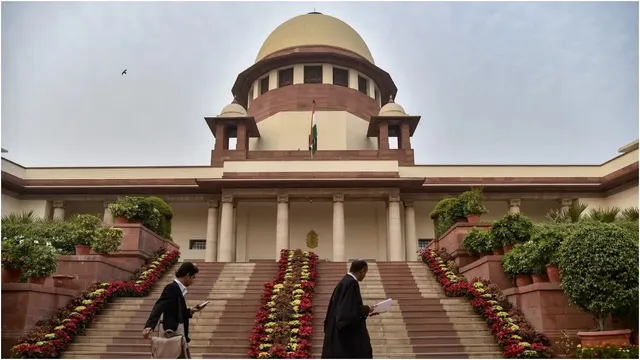- By Soumyaroop Mukherjee
- Mon, 15 Sep 2025 10:56 AM (IST)
- Source:JND
Waqf Row: The Supreme Court gave its judgment on the Waqf Amendment Act, saying that the law can be stayed in the rarest of rare cases only. “We have considered a prima facie challenge to each section of the act and found no case was made to stay out the entire statute,” says the Supreme Court, quoted by the PTI.
The Court refused to put the stay on the entire statute, saying that ‘presumptions’ are always in favour of the ‘constitutionality’ of the statute, rather than putting a ‘stay’on the same. A Bench of Chief Justice of India (CJI) BR Gavai and Justice Augustine George Masih passed the interim order today.
What Are The Directives Of The Supreme Court?
- The Supreme Court has put a stay order on the provision that a person has to be a practicing Muslim for five years before dedicating a property as ‘waqf’ under Section 3(r). “State rules are framed for examining whether a person is a practicing Muslim or not. Without any such rule/ mechanism, the provision will lead to an arbitrary exercise of power,” said the Supreme Court, reported by Bar and Bench.
- The Court has directed that the number of non-muslims in the state waqf boards cannot exceed three persons. For the central waqf council, the number cannot exceed four members. The Court also directed that the Chief Executive Officer of the Board should be a Muslim member as far as possible.
- In the interim provision, the Supreme Court has put a stay on the powers of the Collector to adjudicate the rights of personal citizens, as it will violate the separation of powers. Till adjudication happens by the tribunal, no third-party rights can be created against any party.
- But the Supreme Court did not put a stay on the requirement for the registration of the Waqf properties. "We have held registration from 1995 to 2013, and again now. So we have held registration is not new," the CJI said in its interim order.
ALSO READ: Waqf Amendment Bill 2025: Toward Transparency and Legal Clarity | Explained

